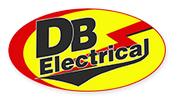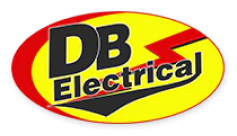
- Product Info
- Applications List
- Part Replacement List
- Policy Information
- Reviews
Quick Links
Overview
DB Electrical Voltage Regulators
DB Electrical keeps vehicles of every shape and size moving forward – from mowers, motorcycles and ATVs to automobiles, tractors, pickups and large commercial trucks. We work directly with factories to ensure each component is manufactured to our exacting quality control standards that meet genuine OEM specifications. But because there is no middleman, we can offer these exceptional-quality electrical components at low factory direct prices.
Purpose of a Voltage Regulator
A voltage regulator is a seemingly simple component, but it performs one of the most vital tasks in your vehicle’s electrical system. As the name suggests, the voltage regulator maintains a consistent and manageable output of voltage passing through the system. As the alternator or generator produces power, the voltage regulator controls the voltage capacity that goes to the battery. If too much voltage is allowed to pass, it can cause damage to the battery, wiring system and other electrical accessories.
With DB Electrical voltage regulators, you’ll get …
- OEM Quality Every Time – Our aftermarket voltage regulators deliver performance that’s equivalent to the ones made by OEM suppliers.
- Direct-Fit OEM Replacement Parts – DB Electrical aftermarket voltage regulators are designed for perfect fitment to replace the one that originally came with your vehicle.
- Engineer-Tested Excellence – Our voltage regulators go through a rigorous testing program to ensure optimal performance.
Reasons to choose DB Electrical for your next voltage regulator:
- Premium materials – Higher quality delivers exceptional performance.
- Long-term reliability –Long service life to keep your vehicle’s electrical system running better for a longer time.
- Brand new – Never settle for a secondhand one.
The DB Electrical Advantage – 1-Year Warranty
DB Electrical delivers exceptional value for products that we stand behind with our total-confidence 1-year warranty. Yes, you have a full year to make sure your voltage regulator meets your expectations.
Item Number: 230-58032
100% Brand New Aftermarket Part From DB Electrical
Product Specs
| Item Condition | Aftermarket Part |
| Unit Type | Part |
| Part Type | RECTIFIER / REGULATOR |
| Voltage | 12 |
| Fits | Suzuki LT-A500 Quadmaster 2001-02 Suzuki LT-F500 Quadmaster 1998-02 Suzuki VL800 M/C 2001-05 |
Applications List
| MAKE | TYPE | MODEL | YEAR | ENGINE |
| Suzuki | ATV | LT-A500F QuadMaster | 2000 | 500cc |
| Suzuki | ATV | LT-A500F QuadMaster | 2001 | 500cc |
| Suzuki | ATV | LT-F250F Quadrunner 4WD | 1998 | 250cc |
| Suzuki | ATV | LT-F500F Quadrunner | 2001 | 500cc |
| Suzuki | ATV | LT-F500F Quadrunner | 2002 | 500cc |
| Suzuki | Motorcycle | VL800 Intruder Volusia | 2001 | 805cc |
| Suzuki | Motorcycle | VL800 Intruder Volusia | 2002 | 805cc |
| Suzuki | Motorcycle | VL800Z Intruder Volusia | 2001 | 805cc |
| Suzuki | Motorcycle | VL800Z Intruder Volusia | 2002 | 805cc |
Replaces These Part Numbers
| ARROWHEAD | ASU6023, 230-58032 |
| SUZUKI | 32800-44D30, 32800-44D31 |
Frequently Asked Questions
Q: Why do we need a voltage regulator in the charging system?
A: A voltage regulator is crucial in the charging system to ensure a stable voltage output, protect sensitive electronics from damage due to voltage fluctuations, and control the charging rate of the battery for optimal performance and longevity. |







